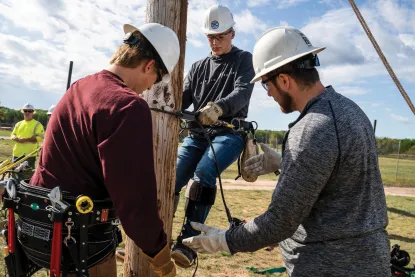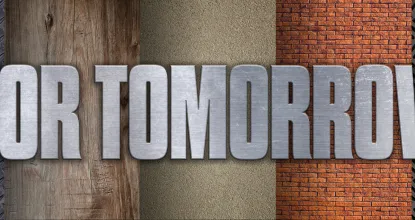
About the Career
Generally, graduates find apprenticeships with electrical contractors, which normally requires extensive travel and a variable worksite reporting location, or with electrical utilities, which usually results in a fixed worksite reporting location. Graduates may also find employment as cable TV and telephone installers or with communications tower installation and maintenance companies. Whether with a contractor or a utility, an apprenticeship usually requires about 7000 hours of on-the-job training to achieve journeyperson status (about three and one-half years). Job opportunities are available nationwide. Once journeyperson status has been achieved, you will have a profession that is easily transportable and needed by most of the population—virtually anywhere in the world.
What you'll learn
Students will attend courses at a training site in Gwinn, Michigan. Students will receive introductory elevated outdoor work-site field experiences related to electrical power transmission and distribution systems, including climbing, pole setting and framing, guying, and bucket and digger truck operation. Students will also learn the principles of electricity and the fundamentals of current flow in series, parallel, and compound circuits as well as general industry safety rules.
Each student has the opportunity to train for and receive their Commercial Driver’s License (CDL A) while in the line tech program.
Job Spotlight
Electrical Power Line Installer/Repairer
Median earnings
$36/hr
Projected job growth to 2029
+5%
NMU Programs
Electrical Line Technician Certificate - 1 year
Graduates are prepared for employment as professional linemen, able to install and repair cables, wires, and structures used in electrical transmission and distribution systems.
